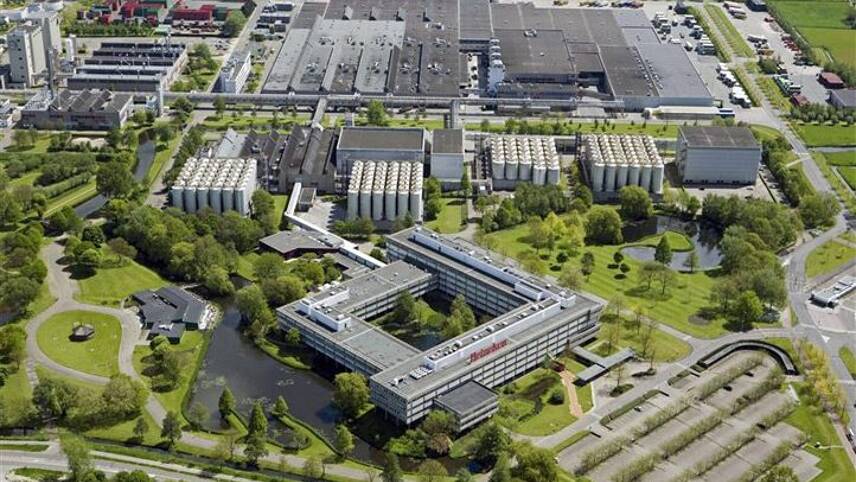This premium content is exclusive to edie Members.
To find out more about edie Membership, please click below.
If you are an existing member, login here

Image: Heineken
At a glance
Who: Heineken, Siemens
What: Decarbonisation programme
Where: Breweries and malt houses worldwide
When: Multi-phase initiative, with initial projects already underway
Why: To achieve net-zero emissions
The challenge
The challenge facing Heineken revolves around reducing energy consumption and carbon emissions in its brewing and malt production processes. In 2022, Heineken’s Scope 1 and 2 greenhouse gas emissions were estimated at approximately 1,460 kilotonnes of CO2e.
With sustainability as a core focus, HEINEKEN aims to minimise its environmental footprint while maintaining operational efficiency and productivity.
The solution
Heineken has partnered with Siemens to implement a comprehensive decarbonisation programme. This initiative involves leveraging Siemens’ innovative solutions and services from its Siemens Xcelerator portfolio to optimise energy usage across more than 15 Heineken production sites spanning facilities across Asia-Pacific, the Americas and Europe. There are plans for expansion in subsequent phases.
How the project works
Heineken and Siemens collaborated on consulting, auditing and advisory services, using an energy digital twin to simulate a typical Heineken brewery. The simulation showed that 70% of energy use was linked to heating and cooling for the brewing process. By optimising these systems through an end-to-end programme, Siemens estimates energy savings of 15-20% and a 50% CO2 reduction at each site.
Siemens will deploy scalable solutions across Heineken’s production sites, designing a system to electrify heating and cooling using renewable energy-powered heat pumps. Monitoring and optimisation will be conducted using Siemens Cooling Plant Optimisation algorithms to reduce energy costs and ensure efficiency.
Siemens will also provide a five-year performance and monitoring contract, connecting breweries to Siemens systems for remote monitoring, ensuring optimal operation.
The results
Early projections indicate promising results, with an estimated 15-20% reduction in energy consumption expected at each production site. Furthermore, significant CO2 emissions reductions are anticipated, contributing to Heineken’s overarching sustainability goals.
Business benefits
The partnership with Siemens brings forth numerous benefits for Heineken, including enhanced operational efficiency, reduced environmental impact and strengthened competitiveness in the brewing industry.
Heineken aims to achieve carbon neutrality in its beer production by 2030 and extend this goal to its entire supply chain, encompassing agriculture, packaging, distribution and cooling, by 2040.
This initiative aligns with Heineken’s commitment to corporate responsibility and its strategy to attain net-zero emissions throughout its value chain by 2040.
Investment/savings
While specific financial details are not disclosed, the investment in Siemens’ solutions is expected to yield substantial long-term savings for Heineken through reduced energy costs and enhanced operational performance.
Industry context
Heineken’s decarbonisation programme underscores the brewing industry’s increasing focus on sustainability and environmental stewardship.
Research has cautioned that the beverage industry remains on the verge of missing its 2030 and 2050 net-zero emissions targets.
In 2021, the industry’s emissions accounted for 1.5 billion tons of CO2e (3.8% of global emissions). Despite a 6% reduction in CO2e per litre from 2018 to 2021, the industry’s current pace falls short of long-term requirements to decarbonise.
With mounting pressure to address climate change, initiatives like Heineken’s set a precedent for driving the transition towards a more sustainable and circular economy within the beverage sector.
© Faversham House Ltd 2024 edie news articles may be copied or forwarded for individual use only. No other reproduction or distribution is permitted without prior written consent.

